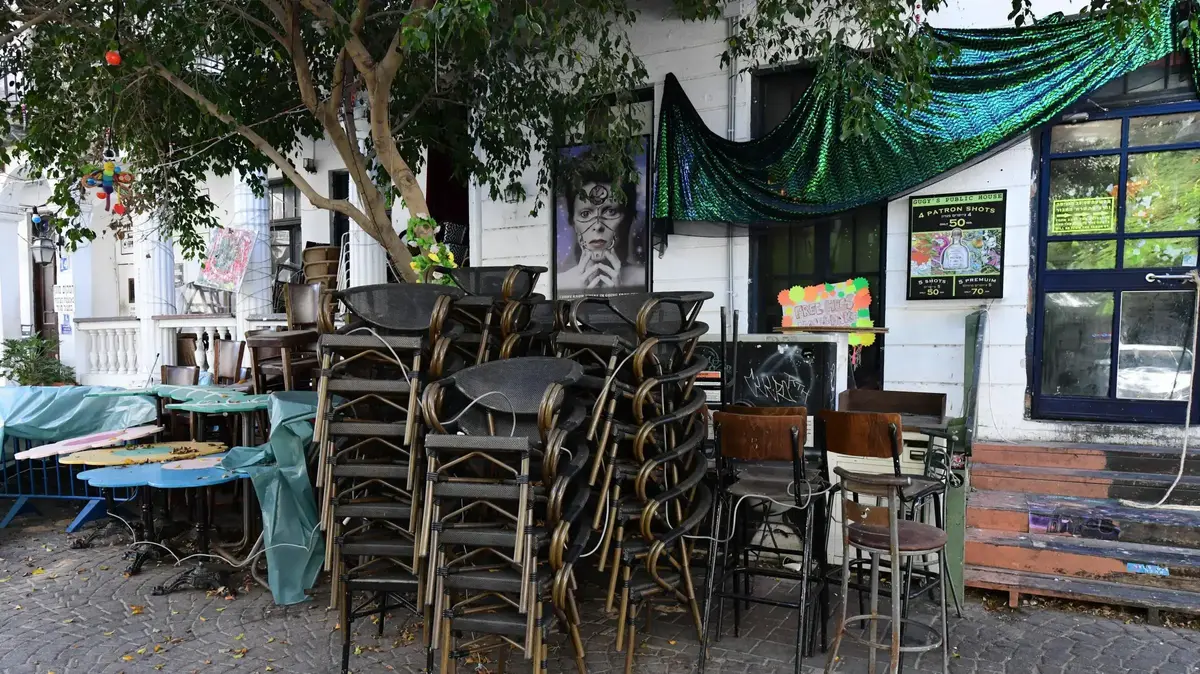Demonstration in Nahariya organized by the Histadrut (Histadrut spokesman)
"A lot of people postpone dental treatments. What is not urgent - is not treated. They don't care that it's cumulative damage, no matter what I explain to them, they tell me - there's no money. Everything is going up."
These words are told to us by a dentist from Petach Tikva, and they contain an accurate reflection of what has been happening in the Israeli economy in recent months – the increase in the interest rate that added about NIS 60,2023 to the mortgage repayment, alongside the increase in the price of consumer credit, and the darkening economic horizon, leading more and more households in Israel to tighten their belts and reduce expenses, sometimes cutting into live meat.
Those who are experiencing the consequences of the situation directly are small and medium-sized businesses in Israel. "This is one of the most challenging times ever experienced by small businesses in Israel – the credit crunch makes it very difficult for them. Businesses that were used to turning to the bank and getting credit get a brakes, and if they succeed, it's usually at a very high interest rate," notes Yoram Shiffer, CPA, one of Israel's leading accountants, who represents, among other things, many hundreds of small and medium-sized businesses.
Attorney Roy Cohen, who serves as president of Lahav of the Association of Self-Employed and Business Organizations in Israel, provides a dark forecast: "If there is no change, we are on the way to 40,<> businesses that will close in <>. Already, there is one hundred percent increase in insolvency requests. We wake up every morning to the collapse of a small business, another, food, clothing, transportation, fashion, etc."
"The market is stagnant, and heading towards recession, how is every question. The situation is worse than the coronavirus, business owners are at a loss, some of them are just freezing and don't know how to get out of this trouble," notes Dan Bar Or, owner of a website marketing company, who testifies to the dramatic drop in turnover and the problematic consequences: "Lots of checks from returning customers, some of them asking for a new layout. I had no choice and laid off <> percent of my workforce. At this rate, I will lay off more employees soon," he adds sadly.
Restaurant closed in Carmel Market during the Corona period. These pictures are repeated in many places (Photo: Reuven Castro)
Indeed, the volume of state tax revenues for March showed a sharp decline in tax revenues of 4.4% compared to the corresponding months in 2022, these figures, which indicate a reduction in private consumption, are the first sign of a slowdown in Israelis' spending, which comes at a particularly difficult time for small businesses.
"I was an idiot, about two years ago I took out a loan of half a million shekels to develop the business. The problem now is that interest rates are rising and customers are stopping buying – it's a blow that can't be dealt with. Now I see companies around me that are starting to go bankrupt or be sold," adds a cosmetics business owner in Tel Aviv.
Further evidence of the deterioration in the situation of businesses in Israel, including small ones, is provided by the BDI index, which has jumped by 2022% since June 5, from 6.03 to 6.32. Small businesses are the weakest link in the chain, notes Tehila Yanai, co-CEO of BDI, and explains: "Small businesses don't have enough power to bargain over costs and prices. A small café, for example, can't bargain with suppliers who raise prices for it, and on the other hand can't afford to raise prices for customers."
More in Walla!
Virtual Reality Therapy: Treatment for Anxiety
In association with Zap Doctors
"On the way to 60,<> businesses closing." Adv. Roy Cohen (Photo: Ofir Abe)
"We feel a slowdown that started at the beginning of the year, there is a general atmosphere of despondency and we are built on an atmosphere. People are not in the mood to have a good time. There is a decline of tens of percent in revenues," notes Shai Berman, chairman of the restaurant association. According to him, in Tel Aviv, the most drastic decline is in the segment of expensive restaurants. There has also been a significant decline in lunch orders, especially in high-tech."
It's starting to look like a recession, like the one in 2003. "Don't forget that apart from the increase in the interest rate, which occurred in a very short period of time, municipal taxes also increased, as did quite a few raw materials that became more expensive, reducing the profit margins of business owners," notes Shiffer, CPA. According to him, "It is impossible to indefinitely pass the costs on to the consumer, because business owners also need to maintain attractiveness, in such a competitive market."
"Businesses get brakes." Adv. Yoram Shiffer (Photo: Tohar Ben Or)
Even garage owners, an industry considered relatively resilient because of the critical importance of the service they provide, complain about the difficulties of subsistence: "Due to the high interest rate, financing expenses have increased for us by three hundred percent," notes Moshe Somekh of the Garages Association, "We are forced to spread the payment to customers, and absorb the interest that this entails."
At the same time, he notes that there is a very disturbing trend, in which it is difficult to get permission from customers to repair failures discovered in the vehicle, although some certainly affect its safety. The result - "garages are starting to close, some are joining forces."
Fewer vehicles board the Lyft (Photo: ShutterStock)
Another indication of the worsening situation can also be found in data from Oketz Systems, according to which over the past six months there has been a 19% increase in the number of small and medium-sized business owners who have reduced their workforce. Haim Molcho, CEO of the company that provides computerized solutions in the field of manpower, explains that this is a red flag: "If the government does not help small businesses get through this challenging period, we will see many of them crash. The state has a clear interest in supporting them."
So what can the state do? Quite a bit, it turns out. "First, it can amend the Income Tax Regulation regarding recognition of products in a shorter period of time than is customary today," notes Yoram Shiffer, CPA, partner at Ziv Shiffer & Co. "It can also give tax breaks to businesses at the beginning of their careers or recognize losses even in the years after opening.
Second, Shiffer notes that the Ministry of Finance and other government ministries must lead an in-depth and comprehensive discussion, in cooperation with business organizations and professional bureaus, and prepare a plan to reduce barriers and encourage small businesses. This plan should include easing the conditions for obtaining state-guaranteed loans; expansion of accompaniment to small businesses; allocating resources to improve industrial zones, especially in the periphery; and close cooperation between the various entities, including government ministries, local government, business sector organizations and professional organizations.
Attorney Cohen concludes: "Instead of the government taking responsibility for the incident, it closes its eyes and lets the governor fight the only tool at his disposal – raising the interest rate, where are measures such as accelerated depreciation, reduced VAT on basic goods, provision of state-guaranteed credit, lowering taxes? This is a government that stands by and adopts a method of sit and don't. I demand an emergency discussion in the government and the establishment of a round table: government and business sector, in order to genuinely fight inflation and not plunge the economy into the abyss."
- money
Tags
- Small Business
- Taxes
- inflation









